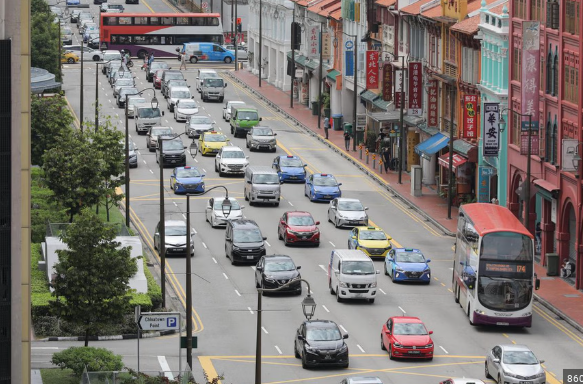Government aims for a full transition to cleaner energy vehicles by 2040
Starting January 1, 2025, Singapore will ban the registration of new diesel cars and taxis as part of its plan to transition all vehicles to cleaner energy sources by 2040. This policy, first announced in March 2021 during a parliamentary debate on environmental sustainability, is part of the nation’s strategy to reduce vehicle emissions.
According to the Land Transport Authority (LTA), diesel cars and taxis already make up less than 1% of new registrations, as cleaner alternatives have become more widely available.
The ban precedes Singapore’s 2030 requirement for all newly registered cars and taxis to be cleaner-energy models. However, owners of diesel cars registered before January 1, 2025, can still renew their Certificate of Entitlement (COE)—though they will face higher road taxes to discourage continued use. Vehicles older than 10 years already incur an additional 10% to 50% surcharge, depending on their age.
Exceptions for Classic and Vintage Vehicles
The restriction will not apply to vehicles under the Classic Vehicle and Vintage Vehicle schemes, which cover:
Classic Vehicles – At least 35 years old from their original registration date.
Vintage Vehicles – Well-preserved models manufactured before January 1940.
Diesel Vehicle Statistics in Singapore
As of May 2024, Singapore had 19,972 diesel-powered cars and taxis, a small percentage of the 164,759 diesel vehicles in operation, most of which are goods vehicles and buses.
Diesel passenger cars make up 2.7% of Singapore’s 650,001 total car population.
Taxis, once predominantly diesel-run, have largely transitioned to petrol-electric hybrids or electric models, with only 16.8% of the 13,330 taxis still running on diesel.
Transitioning Commercial Vehicles Away from Diesel
To encourage businesses to shift from diesel, the government has implemented several incentive programs:
Early Turnover Scheme (ETS): Allows commercial vehicle owners to replace their older diesel models with cleaner ones at a discounted COE rate instead of bidding for a new certificate.
Commercial Vehicle Emissions Scheme (CVES): Offers cash incentives for choosing electric light goods vehicles over diesel models.
Despite these measures, 88.6% of goods vehicles and 97.4% of buses in Singapore were still diesel-powered as of May 2024, though this marks progress from 95.8% in 2020. The LTA aims to replace half of Singapore’s 6,000 public buses with electric models by 2030, while private bus operators have already begun adopting fully electric fleets.
Environmental Impact of the Diesel Ban
In 2021, then-Transport Minister Ong Ye Kung reported that motor vehicles in Singapore emitted 6.4 million tonnes of carbon dioxide equivalent per year.
If all light vehicles, including cars and taxis, switched to electric power, the country could reduce emissions by 1.5 to 2 million tonnes per year, cutting 4% of total national emissions.
Ong also noted that transitioning from an internal combustion engine vehicle to a battery-powered vehicle results in a 50% net reduction in carbon emissions, even when the electricity is generated from fossil fuels like natural gas.








